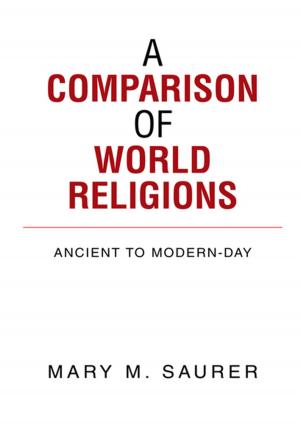Little Black Breastfeeding Book
Maternal Experience of Breastfeeding
Nonfiction, Family & Relationships| Author: | Jacqueline Lois | ISBN: | 9781469172873 |
| Publisher: | Xlibris US | Publication: | May 2, 2012 |
| Imprint: | Xlibris US | Language: | English |
| Author: | Jacqueline Lois |
| ISBN: | 9781469172873 |
| Publisher: | Xlibris US |
| Publication: | May 2, 2012 |
| Imprint: | Xlibris US |
| Language: | English |
The Little Black Breastfeeding Book is a small reference book that arms women with the emotional tools they will need to nurse their babies through the first year of life. The title is a bit of a play on words as it is small in size and it is black in cover, but it also is directed toward black women as it shares the authors story as a black woman who has breastfed her children and who would like to see more black women do the same. The book in interactive fashion asks a series of questions that a midwife might use to assess readiness to breastfeed. The author intentionally hopes to create a dialogue in small groups of women that will garner support for nursing their babies and delaying weaning. The author sees breastfeeding as an extension of the bond formed between mother and baby during pregnancy. Clearly, prematurity; little or no breastfeeding, early weaning and early and frequent separations between mothers and babies are seen as related plagues on the community and perhaps more importantly as damaging to the health and well-being of the mother. The book also takes a departure from most how-to books targeted for women during pregnancy and uses an interactive format to list what she believes are the most common reasons why mothers fail to nurse their infants and what she believes are the keys to a successful maternal experience of breastfeeding. There will certainly be some controversy as she challenges commonly held beliefs about sleeping with your infant and advice on weaning and the importance of resolving spiritual and emotional issues in parenting. Some may also find the focus on intellectual and emotional issues a welcome departure from many baby books you may receive at your baby shower. The book lists the more common reasons black women dont breastfeed their infants as well as listing what she believes will allow women to succeed at nursing. In a clever way she invites the reader to look inward and to answer those same questions for herself.
The Little Black Breastfeeding Book is a small reference book that arms women with the emotional tools they will need to nurse their babies through the first year of life. The title is a bit of a play on words as it is small in size and it is black in cover, but it also is directed toward black women as it shares the authors story as a black woman who has breastfed her children and who would like to see more black women do the same. The book in interactive fashion asks a series of questions that a midwife might use to assess readiness to breastfeed. The author intentionally hopes to create a dialogue in small groups of women that will garner support for nursing their babies and delaying weaning. The author sees breastfeeding as an extension of the bond formed between mother and baby during pregnancy. Clearly, prematurity; little or no breastfeeding, early weaning and early and frequent separations between mothers and babies are seen as related plagues on the community and perhaps more importantly as damaging to the health and well-being of the mother. The book also takes a departure from most how-to books targeted for women during pregnancy and uses an interactive format to list what she believes are the most common reasons why mothers fail to nurse their infants and what she believes are the keys to a successful maternal experience of breastfeeding. There will certainly be some controversy as she challenges commonly held beliefs about sleeping with your infant and advice on weaning and the importance of resolving spiritual and emotional issues in parenting. Some may also find the focus on intellectual and emotional issues a welcome departure from many baby books you may receive at your baby shower. The book lists the more common reasons black women dont breastfeed their infants as well as listing what she believes will allow women to succeed at nursing. In a clever way she invites the reader to look inward and to answer those same questions for herself.















